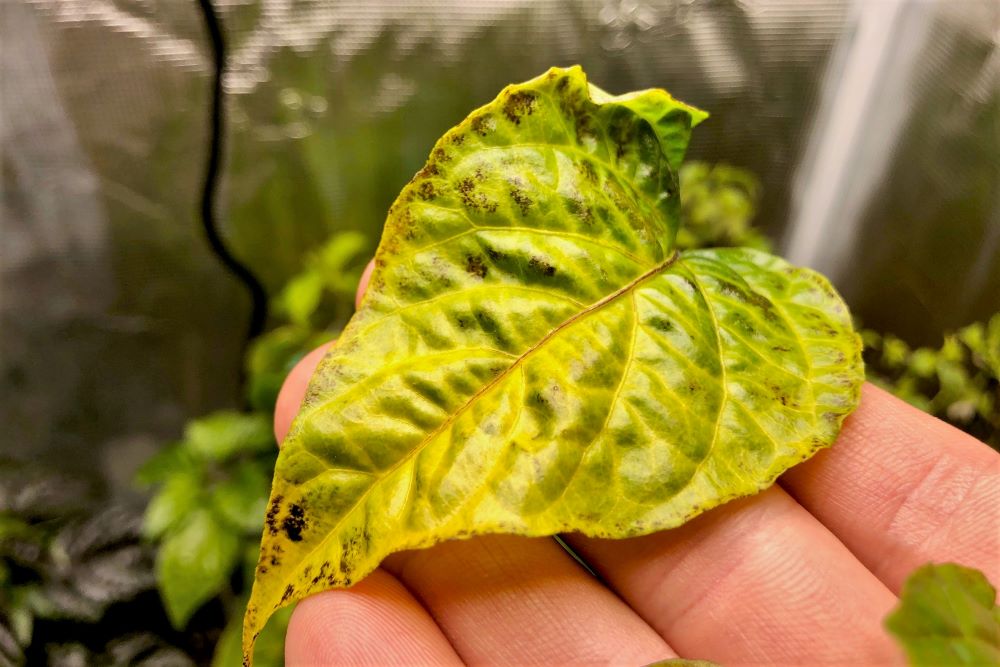Reveal the Best Fertilizers for Peppers: Essential Nutrients for Flourishing Plants
Reveal the Best Fertilizers for Peppers: Essential Nutrients for Flourishing Plants
Blog Article
Organic Vs. Synthetic Fertilizers: Which Is Best for Supporting Healthy And Balanced Pepper Plants?
In the world of nurturing healthy and balanced pepper plants, the selection between artificial and natural plant foods stands as a critical choice with far-reaching ramifications. While both alternatives purpose to supply important nutrients to support plant development, the subtleties of their influence on the soil, plant wellness, and the setting stimulate a discussion that mirrors throughout the horticulture neighborhood. Understanding the distinctive advantages and prospective mistakes of each fertilizer kind is essential for pepper growers looking for to enhance their returns while keeping an eco-conscious and sustainable technique.
Benefits of Organic Fertilizers
Organic fertilizers offer a lasting and environmentally-friendly method to beneficial pepper plants, offering vital nutrients without the use of artificial chemicals. These natural plant foods are obtained from natural sources such as garden compost, manure, bone dish, and algae, advertising dirt health and wellness and biodiversity. Unlike synthetic plant foods, organic alternatives launch nutrients slowly, ensuring a balanced and stable supply for pepper plants to prosper.
One significant advantage of organic plant foods is their ability to boost dirt structure and water retention. By enhancing soil health and wellness, natural fertilizers advertise useful microbial activity, which helps in nutrient uptake by pepper plants. In addition, natural plant foods minimize the risk of chemical run-off, safeguarding water sources from pollution and securing the environment.
Furthermore, organic fertilizers add to long-term dirt fertility by promoting the growth of helpful dirt organisms. These organisms help break down raw material, releasing nutrients in a form that is quickly available to pepper plants. best fertilizers for peppers. By promoting a healthy dirt environment, natural fertilizers support sustainable pepper cultivation practices that profit both plants and the atmosphere
Drawbacks of Synthetic Plant Foods
Artificial plant foods, in comparison to their organic counterparts, pose different downsides when utilized to nourish pepper plants, impacting both plant health and ecological sustainability. One significant drawback of artificial plant foods is their tendency to seep nutrients from the dirt rapidly. This rapid leaching can bring about vitamins and mineral discrepancies in the soil, creating plants to deal with toxicities or deficiencies. In addition, synthetic plant foods can hurt useful soil microorganisms, such as earthworms and useful microorganisms, interfering with the dirt ecological community's balance.
Additionally, the overuse of synthetic fertilizers can add to water pollution. Excess plant foods not absorbed by plants can wash away right into water bodies, bring about eutrophication, where algae flowers diminish oxygen levels in the water, hurting marine life. Additionally, artificial plant foods are generally acquired from non-renewable resources, such as nonrenewable fuel sources, adding to carbon emissions and environmental destruction during their manufacturing.
Nutrient Absorption Contrast
When contrasting synthetic and organic plant foods in terms of nutrient absorption, organic plant foods have the benefit of giving an extra well balanced and slow-release source of nutrients. Organic fertilizers have a selection of macro and trace elements that are not only advantageous for the plants but likewise promote healthy dirt microbial activity, which assists in nutrient uptake.
In addition, organic fertilizers boost soil framework and water retention ability, enabling pepper plants to access nutrients extra effectively. This improved dirt high quality facilitates origin advancement, making it possible for much better nutrient absorption. Synthetic plant foods, although initially enhancing plant growth as a result of their high nutrient concentrations, might impede long-term nutrient absorption by degrading dirt health with time.
Environmental Influence Considerations

On the various other hand, artificial plant foods, although usually even more focused and immediately available to plants, can have destructive impacts on the atmosphere if not Learn More Here applied properly (best fertilizers for peppers). Their manufacturing calls for high power inputs, causing greenhouse gas discharges and contributing to environment modification. Furthermore, the runoff of excess artificial plant foods can contaminate water resources, bring about eutrophication and damaging water communities.
Best Fertilizer Practices for Peppers
When feeding pepper plants, optimizing nutrient uptake and lessening ecological influence are essential considerations. To attain this, it is important more to comply with ideal plant food practices tailored to the specific needs of pepper plants. One vital technique is to perform a soil test before applying any type of plant foods. This examination can determine the pH level of the soil and determine any type of nutrient shortages, leading you in picking one of the most ideal fertilizer formulation.
An additional vital technique is to feed pepper plants at the correct time. Normally, peppers profit from getting fertilizer at growing and after that once again when they start to blossom. Over-fertilizing can bring about nutrition discrepancies and harm the plants, so it is vital to adhere to suggested application rates.
Additionally, picking a well balanced fertilizer with an NPK ratio that matches pepper plants' demands is fundamental. Organic plant foods, such as garden compost or manure, can be outstanding choices as they launch nutrients slowly and boost soil structure over time. Nonetheless, synthetic plant foods can offer a quick nutrient increase when needed. Ultimately, integrating synthetic and natural fertilizers carefully can help support healthy pepper plants while lessening environmental effect.
Final Thought

Organic plant foods use a lasting and environmentally-friendly technique to nourishing pepper plants, giving vital nutrients without the use of synthetic chemicals. Unlike synthetic fertilizers, organic options launch nutrients gradually, making sure a constant and well balanced supply for pepper plants to thrive.
Artificial plant foods, in contrast to their organic equivalents, present different drawbacks when made use of to nurture pepper plants, top article affecting both plant health and ecological sustainability. When comparing organic and artificial plant foods in terms of nutrient absorption, organic plant foods have the advantage of providing an extra balanced and slow-release resource of nutrients.Moreover, organic plant foods improve dirt structure and water retention capacity, permitting pepper plants to accessibility nutrients a lot more efficiently.
Report this page